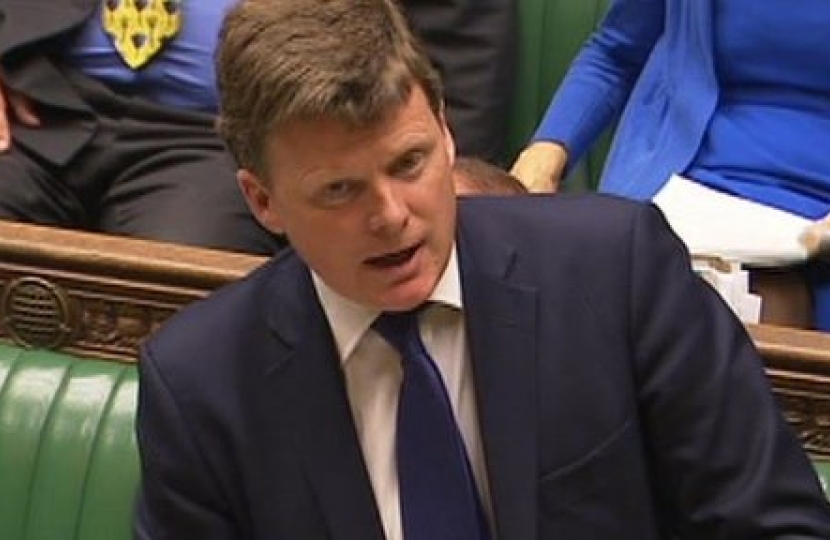
Watch Richard Benyon's speech here on Parliamentlive.tv:
http://parliamentlive.tv/event/index/4e6d04ee-df49-4789-a54a-42f2c7be53b2?in=18:10:35&out=18:15:50
Richard Benyon (Newbury) (Con):There is a strong pacifist tradition in this country that often requires courage to hold to. We have seen that in conflicts down the years. I have respect for those who could never support military action in any circumstances, wrong though I believe them sometimes to be. The rest of us have to reach a settled view on whether the proposal before us tonight is right or wrong. My view is that, on balance, it is right.
I come, like many hon. Members, from what one might call the post-Iraq generation. My default position is to apply a healthy dose of scepticism to any request for military intervention. We can all think of a great many reasons—they have been listed on all sides of the House—why not going ahead with an extension of the air campaign is the right thing to do. I entirely concede that it is not without risks. We have to understand, however, the true impact of saying that we will sit this out. If we say that and accept that air attacks have limited Daesh’s ability to operate in mass formations and conduct clear command and control operations and so on, we are, in the words of the Prime Minister, subcontracting out our security to our friends
In the past few days, we have seen many of the reasons not to proceed fall away: a unanimous UN resolution; a political and diplomatic process involving key parties is under way; and a greater understanding of what an air campaign is and is not.
Neil Parish (Tiverton and Honiton) (Con):I agree with my hon. Friend wholeheartedly that we need to take action, however difficult. ISIL wants to destroy everything we believe in through its murderous acts. We need to act and to act now.
Richard Benyon:I entirely agree with my hon. Friend.
One of the main arguments put by a number of colleagues—even by the Chairman of the Defence Committee, on which I sit, a few days ago—is that air campaigns are only successful with little green men in battalions moving along the ground underneath the top cover provided by the RAF. In a perfect world, that is how we use air cover. We do not live a perfect world, however. I asked one my constituents––someone who knows a bit about this, General Sir Mike Jackson––whether he could remember any conflict where air power alone made a difference. He thought and said one word: Kosovo. He then started to recite other circumstances in which an air campaign can diminish an enemy, a point very ably made by the right hon. Member for Derby South (Margaret Beckett).
We have now moved on to question the existence of the so-called 70,000 combatants. We can all dance on the head of a pin and say the reason why we cannot support the motion tonight is that they may not all be the kind of people we like, or that they might not immediately be an effective force on the ground. But they are there. They have not signed up to Assad or to the evil death cult we are targeting, and we have to use them. After the failures of the Iraq war, we have at least an independent and analytical organisation, the Joint Intelligence Committee, to provide the details. They are not being provided by politicians or their advisers. We can quibble about who these people are, but broadly speaking, since the Prime Minister raised the figure of 70,000 it has more or less stacked up. They are militias, some local, but through the four-year civil war they are still there and we should use them.
Standing by our allies at this time, particularly France, matters. Not stepping up now would give the impression that we are happy to subcontract our security. That would leave Britain’s role in the world in a very different place in the minds of our friends and our enemies. Britain’s place in the world, however, is not reason enough for armed conflict. Reason enough is found by recognising that the threat is right here and right now to the thousands of my constituents who travel to London every day to work or to attend peaceful events such as those that were taking place in the Bataclan theatre or the cafés where lovers and friends met in a way that we would want to see in every town and city in this country. The proposed action is limited, legal and has the authority of the UN. In supporting the motion tonight, we will be taking the fight, with our friends, to the heart of the ground controlled by one of the most hideous death cults of modern times.